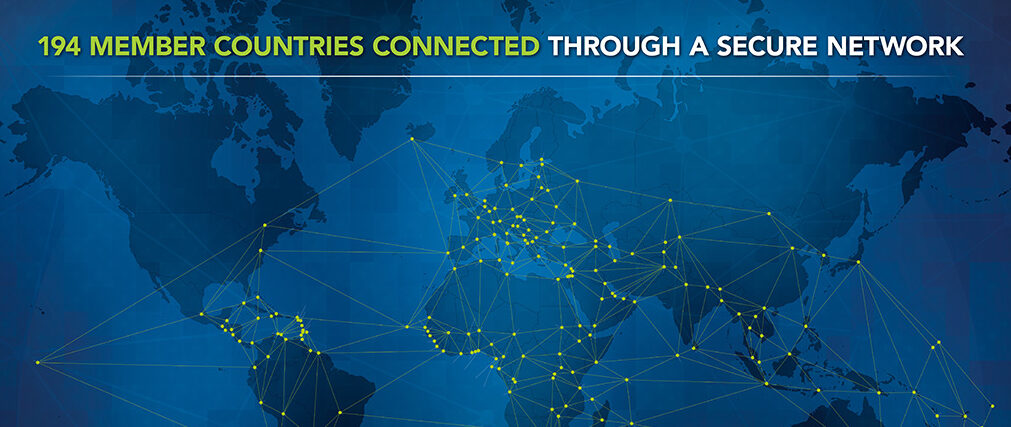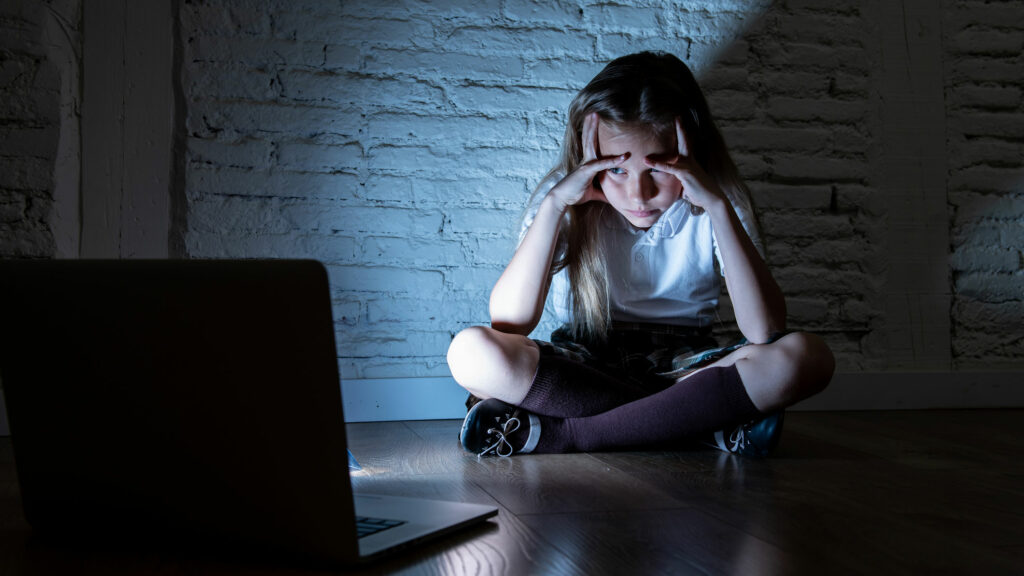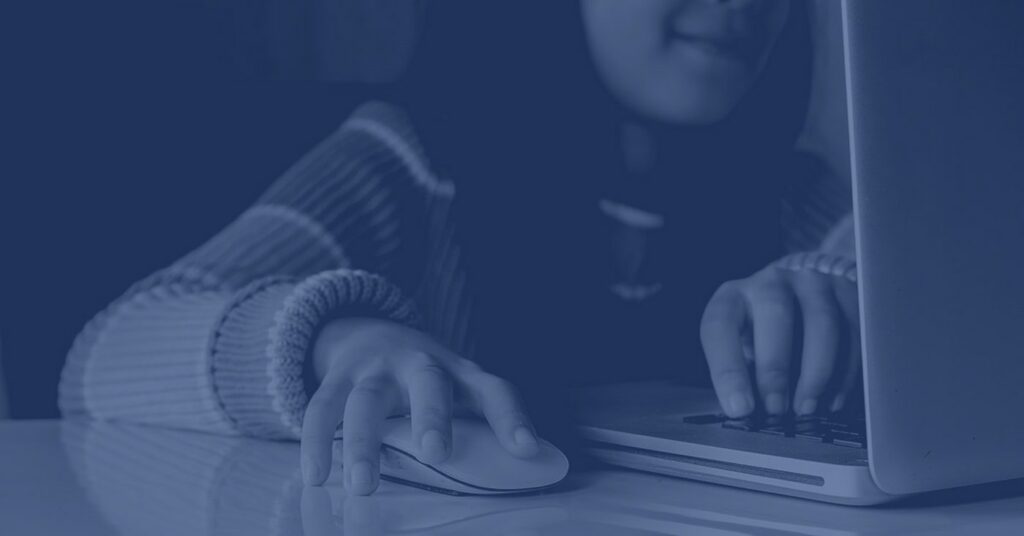By Vicky Papavarnava,
One of the main concerns that were brought up during the COVID-19 pandemic was the increase of domestic abuse. When it comes to crime, criminals have found multiple ways to blossom through the Internet. Pairing the two situations together, the problem that has been created becomes a major concern affecting the most vulnerable part of our population, the children. Children during the COVID-19 pandemic were in the most vulnerable position following the closure of schools and their confinement at home that led to an increased amount of time spent online coupled with the closure of support services. INTERPOL has produced a report, detailing the COVID-19 impact consequences on child sexual exploitation and abuse (CSEA), which compiles information from different sources such as law enforcement and private entities, NGOs, INTERPOL member countries and several other open sources that were collected by the INTERPOL Vulnerable Communities Sub-directorate, Crimes against Children (CAC) Unit.
According to INTERPOL and based on the Routine Activity Theory, it is stated that routine activities are influential in the emergence of certain situations. Thus, changes in routine activities often result in changes in the situations that people face. Taking as an example the COVID-19 situation case, the CSEA landscape has also changed. In summary:
- Suitable target: Children due to the COVID-19 situation following the closure of schools and due to the implementation of online schooling spent an extreme amount of time online; not solely for educational purposes but for entertainment and social purposes as well. The technological boom, that was caused by the immediate necessity of online platforms, and the extreme boredom of staying at home provided ample opportunities to socialise through social media, chats and/or games without providing the appropriate time to become aware of any of the associated risks. Frighteningly, INTERPOL has reported an increase in self-generated material distributed around the clear net which shows the limited knowledge children have regarding the risks of online use.
- Likely offender: Whilst transnational child sex offenders have faced and are facing restrictions due to COVID-19 travel restrictions most of them have moved to online offending. It could be argued that it is easier to target offenders online, but the possibilities of online offending have been proven to be endless and quite difficult to trace. Due to the work-at-home environment and the possibility of working in a more private setting, leads to a higher possibility of illegal consumption of CSEA material. INTERPOL has also stressed that during the COVID-19 pandemic there was a significant increase in peer-to-peer networks sharing CSEA material. With the increased unemployment and economic hardship due to the COVID-19 pandemic, INTERPOL has stressed the possibility of producing and trading more CSEA material in order to earn money. However, there has been no indication of new CSEA material in circulation but even if material is re-circulated children are being re-victimised again and again prolonging their suffering further. Another alarming point raised by the report is that live-streaming of CSEA has increased in recent years and that demands of such material is likely to raise as travel restrictions remain in place and/or if victims are in lockdown with facilitators (being family members or guardians) and economic hardship upsurges.
- Location: Zoom “bombing” during virtual learning classes for children has become a new type of an offence. Zoom “bombing” is when a person unknown to the rest of them, connects to a Zoom meeting and attempts to share CSEA material on the screen. These incidents are still limited with only five or less cases per country reported across the world. The more conventional methods are still messaging applications with a reported increase of viral CSEA videos circulating in such applications during the COVID-19 pandemic in some countries. Nevertheless, other countries have not seen a specific increase or decrease in such messaging applications during the COVID-19 pandemic. Gaming platforms are still a means for offenders to contact children or to share CSEA material. What is most alarming is the argument made by INTERPOL that lockdown measures have allowed for the offender to be on lockdown with a victim of domestic CSEA. Equally alarming is the blurry line between offline and online abuse throughout the pandemic crisis as one country reported that around two-thirds of CSEA during COVID-19 have happened within the family environment whereas another country reported that the CSEA material circulated online is most often material of children inside their own homes or their neighbours’ homes.
- Guardian: The lack of access to social services, teachers or doctors who usually are the key in identifying cases of CSEA allow for the offender to act freely. Also, in regards to online CSEA, although the parent might be working at home and supposedly can have more control over their children’s’ online access, it was argued that the opposite was occurring. As the parents were mostly juggling with the work-at-home situation having limited access to their work necessities, their attempt to also control the situation at-home, having their children around 24/7, led to the children’s increase use of social media platforms – rather than the opposite – making it almost impossible to properly inform their child of all social media risks.
- Handler: Due to the closure of schools and lack of access to social services, there was a possibility for delay in reporting CSEA cases to the police with member countries being concerned that a long delay will lead to no reporting at all of some cases. There has been a significant difference between member countries with some of them classifying CSEA investigations as high priority cases resulting to COVID-19 having limited or no impact on available human resources for conducting CSEA investigations. At the same time, other member countries struggled in conducting such investigations as there was limited staff available or most were working from home with an inability to connect remotely to police networks that would enhance the efficiency of their CSEA investigations.
- Manager: The work-from-home environment has negatively affected the detection and removal of online CSEA material as electronic service human monitoring teams struggled in their attempt and most of the work was done by automated tools. INTERPOL has also reported that 60% of their member countries who were regularly using the International Child Sexual Exploitation database either had a significant reduction in their activity or had not had access to the database at all during the COVID-19 pandemic. The situation will get even worse due to the fact that social media platforms, including Facebook, Youtube and Twitter have warned of the need to use artificial intelligence and automated tools to detect illegal content on their platforms due to restrictions faced by staff from working from home. Human review seems to be more accurate than automated tools, thus, the result is a slower and less effective CSEA material reporting.
The WHO argued that “movement restrictions, loss of income, isolation, overcrowding and high levels of stress and anxiety are increasing the likelihood that children experience and observe physical, psychological and sexual abuse at home – particularly those children already living in violent or dysfunctional family situations”. As per the statement of INTERPOL Secretary General, Jürgen Stock, “what the report shows is that we are seeing just the tip of a growing iceberg in terms of online child exploitation material”. The aim of INTERPOL in raising the above trends is for the law enforcement community to be able to augment their monitoring and detection of CSEA by tackling such trends. COVID-19 has negatively impacted the whole situation, with an overall increase in CSEA offences (with the sole exception of transnational offending) which requires greater human resources and knowledge regarding online offenders.






